A Time to Collaborate
Editor’s Note: This is the second in a series of virtual roundtable discussions with area business leaders concerning the COVID-19 pandemic and its impact on virtually every aspect of life and business. For this installment, we talked with five area bank presidents — Steve Lowell at Monson Savings Bank, Chuck Leach at Lee Bank, Tom Senecal at PeoplesBank, Jeff Sullivan at New Valley Bank & Trust, and Michael Tucker at Greenfield Cooperative Bank — about how this crisis is impacting this important sector and in what ways the region’s banks will be assisting those businesses impacted by the pandemic.
By George O’Brien

Steve Lowell
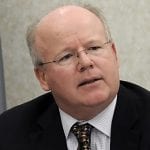
Michael Tucker

Tom Senecal

Jeff Sullivan

Chuck Leach
Steve Lowell called it a “fireside chat.”
That’s how he chose to describe his efforts to reach out to customers during this time of crisis and communicate a number of key points.
“With my wife holding my phone in front of me and me speaking onto the camera … we put it on our YouTube channel and sent out an e-mail blast with a link to it for our customers to get an update,” said Lowell, president and CEO of Monson Savings Bank, adding that, like the creator of the original fireside chat, Franklin Roosevelt, he used his to talk with people directly and work to calm fears at a time when many are afraid. “We wanted to assure our customers that we’re here, we’re operating, and we intend to remain here and continue operating.”
The need for a fireside chat and the method of delivering it show just how different these times are for banks and their customers, commercial and consumer alike. Most of those in both categories are in some form of distress, and they’re looking to their bank, especially if it’s a smaller community bank, for help.
And the banks are providing it, in the form of everything from deferments on mortgage payments and commercial loans to interest-only payment options if customers prefer that option, to refinancing large numbers of mortgages to enable consumers to take advantage of lower interest rates.
And, for commercial customers, these banks will be the conduits for federal assistance to be provided to distressed businesses as part of a $2.2 trillion relief package. A key part of that package is the so-called Payroll Protection Program, which includes $350 in forgivable loans for companies that keep everyone employed.
The system went live, if that’s the right term, on Friday, April 3, and in a manner of minutes, area banks were being overwhelmed by business owners desperate to apply.
“We had more than 300 calls Friday morning,” said Michael Tucker, president and CEO of Greenfield Cooperative Bank. “We sent an e-mail blast out to all our commercial customers at 11 in the morning saying, ‘hey, guys, you’re tying up the phone lines!’ And that was actually well-received — the calls slowed down a little.”
Tom Senecal, president and CEO of Holyoke-based PeoplesBank, reported a similar response at his institution.
“On Friday morning, we put up a link on our website and an e-mail blast to all our commercial customers, and in the first hour we had 1,300 clicks on our link for that application,” he said. “There’s an enormous amount of demand, curiosity, and need for this process.”
Indeed, there is, and as a lead player in funneling these funds, banks that were already challenged in many ways will have exponentially more work and stress — this at a time when all of them have many staffers working remotely and taking in new responsibilities.
Meaning their role will change and become broader in scope.
 “In many ways, it’s analogous to what some of the manufacturers are doing now: a company that was making clothing for a baseball team a few months ago is now making masks and gowns,” said Jeff Sullivan, president and CEO of Springfield-based New Valley Bank & Trust. “We’re going to go through a version of that and have to retool and pivot and think about the new SBA loans that are part of the relief package as different than how we usually do business.”
“In many ways, it’s analogous to what some of the manufacturers are doing now: a company that was making clothing for a baseball team a few months ago is now making masks and gowns,” said Jeff Sullivan, president and CEO of Springfield-based New Valley Bank & Trust. “We’re going to go through a version of that and have to retool and pivot and think about the new SBA loans that are part of the relief package as different than how we usually do business.”
Meanwhile, the banks are coping with a new reality when it comes to how buainess is done in the wake of the pandemic. Most have closed their lobbies or reduced hours to a large degree, with business conducted by appointment only. This means more customers are using online banking and automated tellers, technology that is new to many, and that brings its own set of challenges — and opportunities. Meanwhile, employers are working remotely and finding new ways to work as well.
“On Friday morning, we put up a link on our website and an e-mail blast to all our commercial customers, and in the first hour we had 1,300 clicks on our link for that application. There’s an enormous amount of demand, curiosity, and need for this process.”
“For some who didn’t bank digitally, they’re beginning to be forced to use it, and at our institution, for the most part, we’re getting extremely positive feedback on this,” said Senecal. “Surprisingly, many people who were afraid to use it are liking it now, and I do think this will change the behavior of people in the future to adapt to it more quickly.”
Chuck Leach, president and CEO of Lee Bank, agreed that both customers and employers are adapting to new ways of doing things.
“We’re getting everybody — customers, clients, and employees — more on board with a different way of working through electronic channels,” he told BusinessWest. “As for employees, we were thinking more about working from home before this; we were having conversations already, and we knew we could do it technology-wise, but this just triggered an acceleration of that, which has been healthy for us.”
Overall, these are different and somewhat complex times for banks in that they and their customers are relying more heavily on technology to do business. And yet, it’s a time when many customers need a close banking relationship perhaps more than they ever have.
“Whether it’s in traditional retail or banking, there’s been this drumbeat of ‘everything’s going digital,’” Leach said. “But what this crisis has also illuminated is the need for human contact, albeit by phone or e-mail. When you’re trying to go back and forth with a bank on deferment or interest-only — when you’re solving problems — you still want to talk with someone. Those are not transactional exercises.”
What banks won’t be focusing on this year, said Senecal and others, is earnings. That’s because the bottom line clearly will not be as attractive as it has been in recent years — not with interest rates down to zero, residential customers refinancing their mortgages to take advantage of these lower rates, and other revenue streams being heavily impacted by the pandemic (more on that later).
Lending a Hand
The size and scope of the pandemic’s impact on the local business community was already abundantly clear before those phone calls and e-mails regarding the Payroll Protection Program started coming in that Friday morning. But within just a few hours, area bankers had some fresh perspective.
Indeed, desperate for some relief from their cash-flow headaches and concerned that the well would run dry, even with $350 billion dollars in it, owners of businesses of all shapes and sizes were frantic to initiate the process of staking a claim to some of the relief money.
“They were advised to call their local banker, and … they did,” said Senecal, adding that the banks, often working with a third party to assist with the workload, constitute the front end of this process — taking the applications and, eventually, cutting checks to the companies whose loans are approved.
The U.S. Small Business Administration (SBA), which does the approving, constitutes the back end, and right now, that back end is backlogged.
“I heard on a conference call recently that the SBA typically does roughly $3 billion a year in SBA loans,” said Senecal. “Now, they’re trying to do $350 billion in a week. They are not equipped for the volume that we’re all giving them, or trying to give them.”
Senecal and others said the sheer volume of applications has caused the system to crash temporarily on occasion as banks and the third-party companies many are working with flood the SBA with loan applications.
Lowell said his bank, which is processing the applications itself instead of using a third party, started submitting applications first thing on April 4 (a Saturday), and by noon, it had received word that a number of them had been approved — maybe $20 million worth of loans.
But that’s merely the first, or second, step in the lengthy process of getting money into the hands of business owners, he went on. “No loans have been closed, and they can’t be closed until the SBA comes up with the promissory note that they want us to use. Until they do that — and they say it could be any day — nothing can close.”
Such closures may begin this week, but that would be a best-case scenario, said those we spoke with, adding that, thus far, loan requests are coming in all sizes and from businesses in every sector.
“The SBA typically does roughly $3 billion a year in SBA loans. Now, they’re trying to do $350 billion in a week. They are not equipped for the volume that we’re all giving them, or trying to give them.”
The good news, amid all this talk of backlogs and computer crashes, is that it is highly unlikely that the money will run out. And if it should run out, there will likely be additional stages to the overall stimulus package.
“There’s $350 billion to disperse,” said Senecal. “I heard that, as of yesterday [April 6], $38 billion had been approved. That’s roughly 11% of the entire amount. For people to start thinking, ‘they’re going to run out of money’ — that’s not going to happen. It’s just a very slow process.”
A New Normal
As noted earlier, while banks are still conducting business, it is certainly not business as usual. Most all establishments have either closed their lobbies or established ‘by-appointment-only’ policies, in efforts to safeguard both customers and employees.
Drive-through windows are open, as are ATMs, and institutions with ITMs (interactive teller machines) report a dramatic increase in usage — out of necessity. Overall, those we spoke with reported a few bumps and a slowing of the pace of activity as customers began using new technology, but, overall, a relatively smooth transition, if it can be called that.
“It’s been surprisingly smooth,” Lowell said. “And I say surprisingly because I wasn’t sure how customers would respond. But they have been great. We’ve had people getting documents notarized, opening accounts, and more right through the drive-up. And while it was very busy initially, it has slowed down; we extended hours originally because we didn’t know what to expect, but we’re thinking of reducing things and going back to our normal hours to give our staff a break.”
Returning to the subject of digital banking, Senecal, speaking for all the others at the ‘table,’ said his bank has been gently pushing its customers to embrace new technology like ITMs. The pandemic has provided a great assist in these efforts, and most customers are enjoying the ride, if you will.
“Whenever a customer has done it, you get this reaction like, ‘oh, my God, this is unbelievably easy,’” he said of ITM use. “Like all of us, you need to be pushed toward new technology — it can be intimidating — and the more we push or force people, and they understand the environment we’re in, they’re learning that it’s not so bad.”
But the pandemic has also brought some staffing challenges, said many on the panel, noting that, as they try to keep employees safe, they are limiting the number of people working at one time. And there are other constraints as well.
“We have people in some critical positions who are in the National Guard,” Senecal said. “So we’ve had to readjust some of some our staffing. But otherwise, we have not diminished our services at all; we’re doing everything through the drive-up.”
Michael Tucker, president and CEO of Greenfield Cooperative Bank, said one of his branches actually had to be closed for a short period because the spouse of one of his workers, a first responder, had come in contact with someone who had tested positive for the virus.
“We had split our staff into Team A and Team B at each location,” he explained, noting that the employee in question is on Team A. After deep cleaning and sanitizing the office, it reopened with Team B, with Team A on self-quarantine.
Such developments could not have been imagined even three weeks ago, but they are now part of a new norm for banks.
As for the types of business conducted, the bank presidents we spoke with said that, by and large, people understand that their money is safe, and there has been an inflow when it comes to deposits, rather than anything approach a rush to withdraw money. Meanwhile, commercial activity has slowed tremendously, as might be expected. But on the residential-mortgage side, business has been booming.
‘Crazy’ was the word used by most all them.
Meanwhile, another word uttered over and over by those around this virtual roundtable was ‘outreach.’ Indeed, while taking calls from commercial clients with questions and issues, area banks have been making them as well.
“We’ve been doing a ton of customer outreach, particularly in the hospitality area, and there is a large concentration of those types of businesses in Berkshire County,” Leach said. “We’ve done a lot of proactive outreach with that sector, and there has been a significant number of loan modifications, including more than 80 interest-only and three full deferments on the commercial side.”
All methods of communication have been used, from snail mail — although not much of that anymore — to e-mail, to that fireside chat Lowell gave with the assist from his wife.
“We’ve been trying to be creative as to how we get the word out,” Lowell said. “I recently recorded several commercials that are going to be on radio stations, as well as a brief TV spot using my phone; we’re trying to be creative and take advantage of technology.”
Tucker agreed, noting that his bank has used videos on its Facebook page and other vehicles for communicating a simple but direct message: “we’re here, and we’re going to try to help.”
Earnings Statements
While the banks will play a large role in helping businesses stay afloat during this crisis, they will have to be mindful of their own bottom lines as well. Those we spoke with are projecting that this will be a very challenging year in that regard for all those reasons mentioned above.
“Margins were shrinking before this,” Tucker said. “And now, with no interest coming in for a while, that’s going to put even more pressure on banks. The good news is that the banks here are well-capitalized and have the ability to weather this, but 2020 will be a very difficult year at the end of the year when you see the numbers.”
The banks we spoke with are all mutual banks, meaning there are no stockholders. And their presidents said their respective boards understand the unusual circumstances as well as the need for these institutions to step up and help the community get to the other side of the pandemic.
“None of us are focused on earning this year; we’re doing everything to make sure our communities get through this and economically come out of this in a great position.”
“Most of us, if not all of us, are sitting on a good amount of liquidity, so we’re in a position to take these steps, suffer through a few months of losses, and still fund things that need to be funded,” Lowell said. “And on the regulatory front, everything that we’ve heard from the FDIC, federal examiners, and others is that they are encouraging us to keep this economy running and help people — and they won’t hold it against us, as long as we do it within reason and do it within the confines of safety and soundness and don’t take on excessive risk.
“I think we’re going to be prudent, and the last thing we want is to see any of our customers not get through this,” he went on. “We’re going to be looking to our existing customers first, and then, if we can help other people, we’ll try to do that, whether it’s through the SBA or direct lending, or some of the other programs.”
Sullivan agreed, saying this will be a unique opportunity for the banking community to collaborate, as perhaps never before, and work collectively to steer the economy out of extremely dangerous whitewater.
“I don’t see this as competition or anyone trying to be opportunistic about this,” he told BusinessWest. “The size and scope of this problem is huge, and part of what we want to message to the community is that the industry is collaborating to get through it.”
Senecal agreed. “The focus is to get through this year and be there in support of the community,” he said. “As mutual banks, we’re here for the community, and all of us have enough capital to sustain a really bad year. None of us are focused on earning this year; we’re doing everything to make sure our communities get through this and economically come out of this in a great position.”
Lowell might have summed up the situation, and the sentiments of everyone at the ‘table,’ by saying in conclusion: “it will be an interesting year; I don’t anticipate any of us are going to make a lot of money, but we’re all in good shape at the start of this, and I see us all coming through it the end while helping people stay in business.”
George O’Brien can be reached at [email protected]




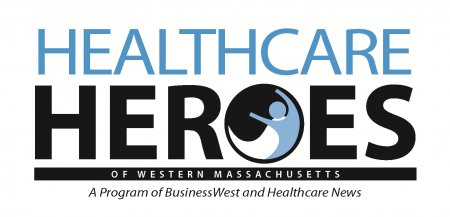


 Ted Perez Jr. calls it a “non-winter.” And he’s seen more than a few during roughly a half-century of work at
Ted Perez Jr. calls it a “non-winter.” And he’s seen more than a few during roughly a half-century of work at  If one were to take a walk down Main Street — and I just did — it would be tempting to say that, if Springfield had any luck at all, it would be bad.
If one were to take a walk down Main Street — and I just did — it would be tempting to say that, if Springfield had any luck at all, it would be bad.



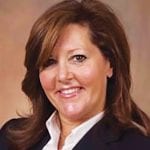








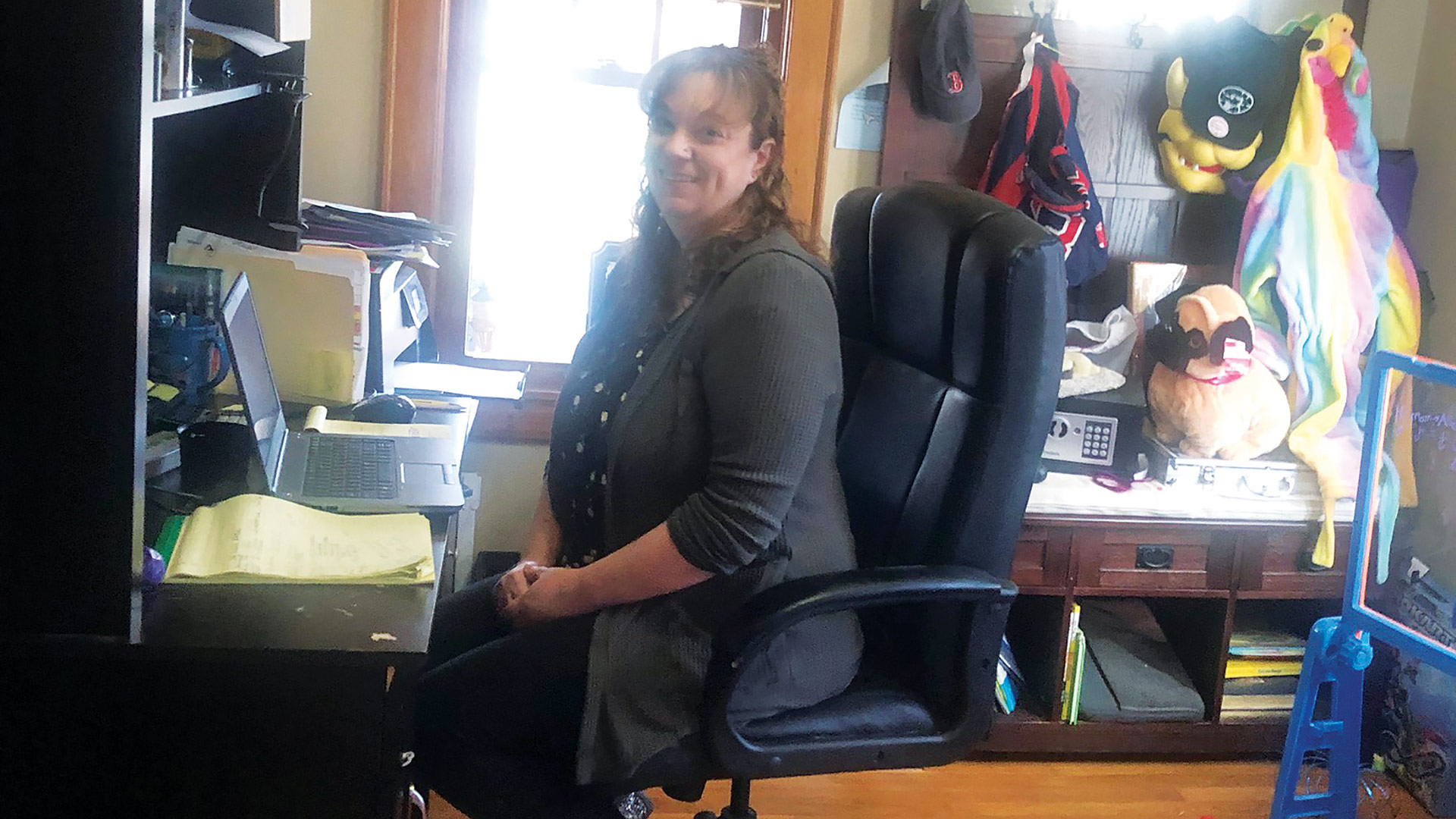

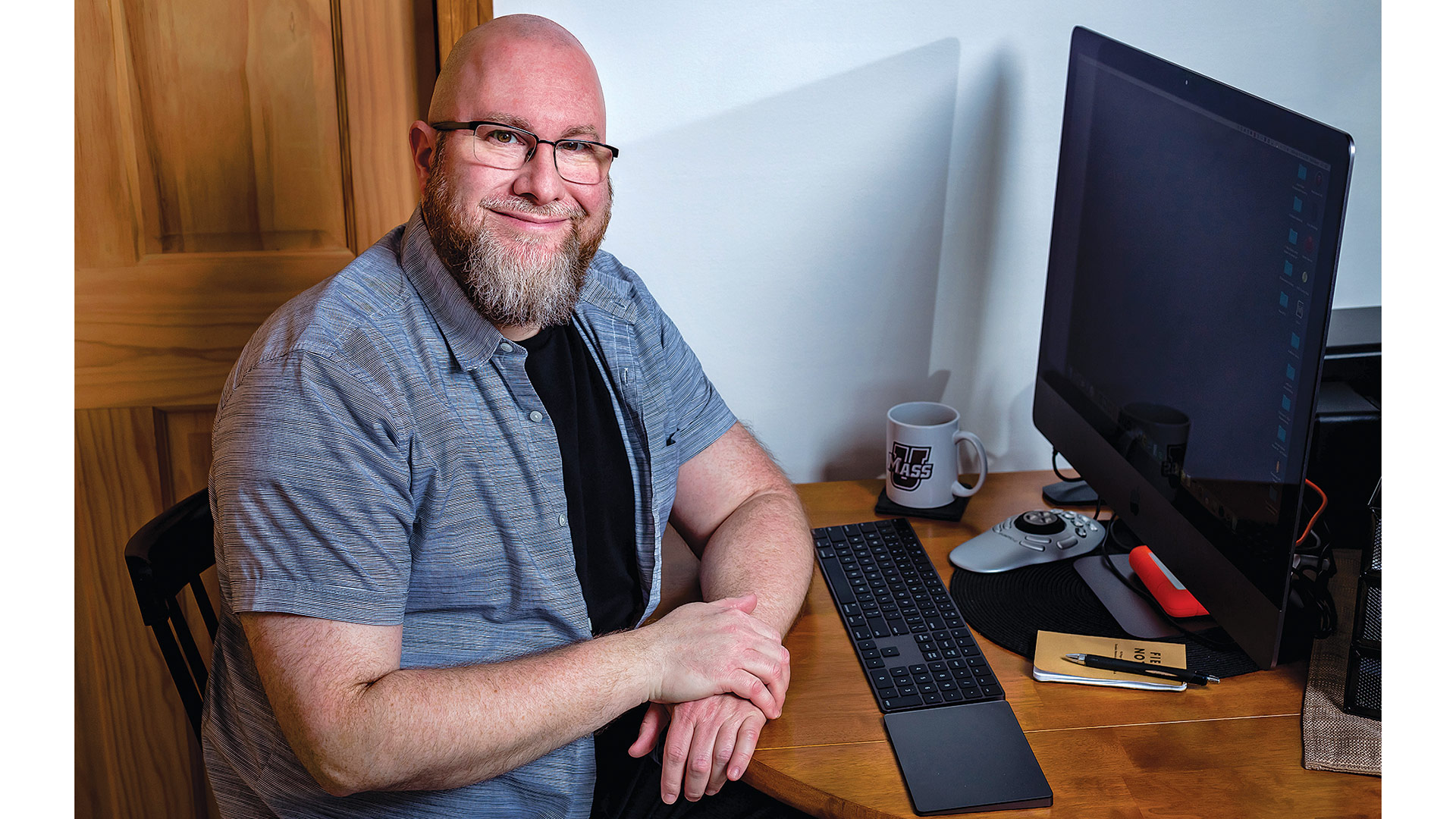






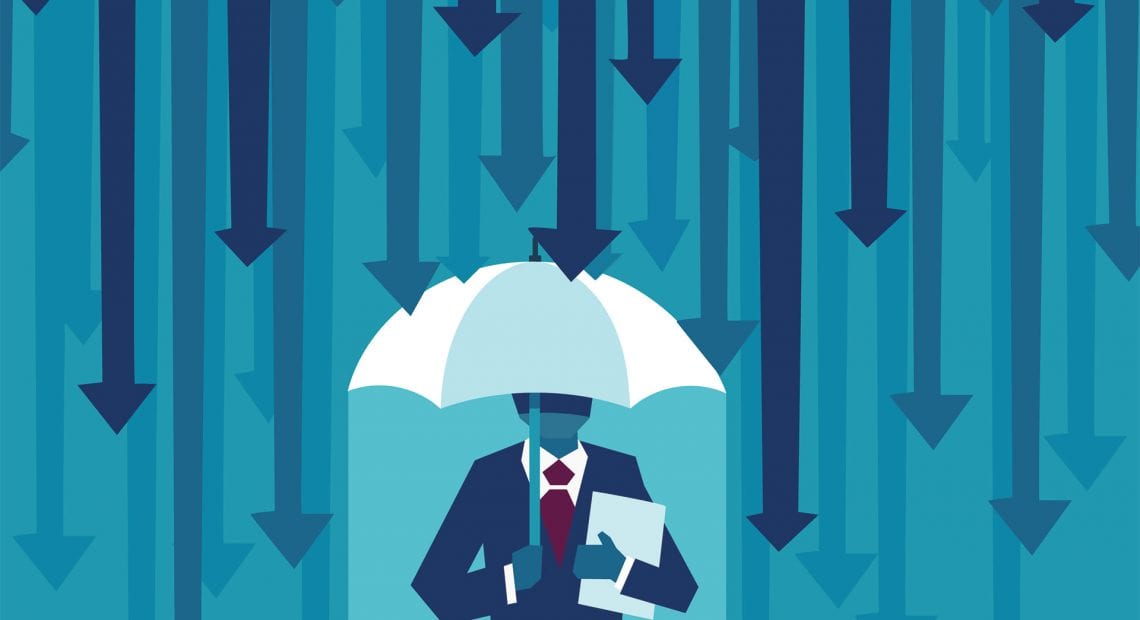







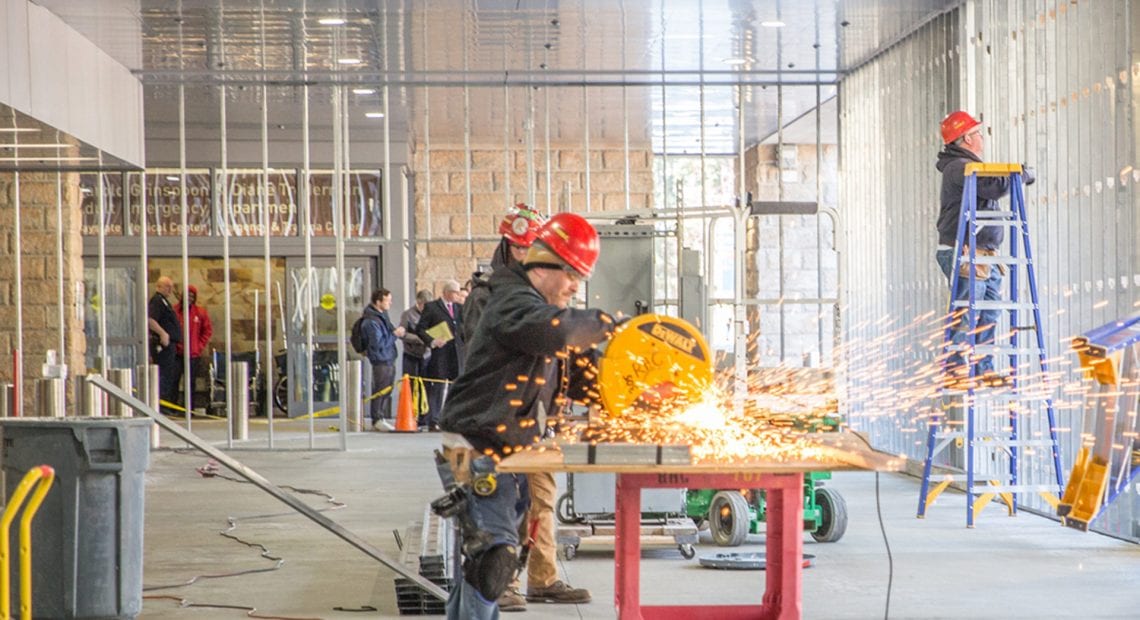
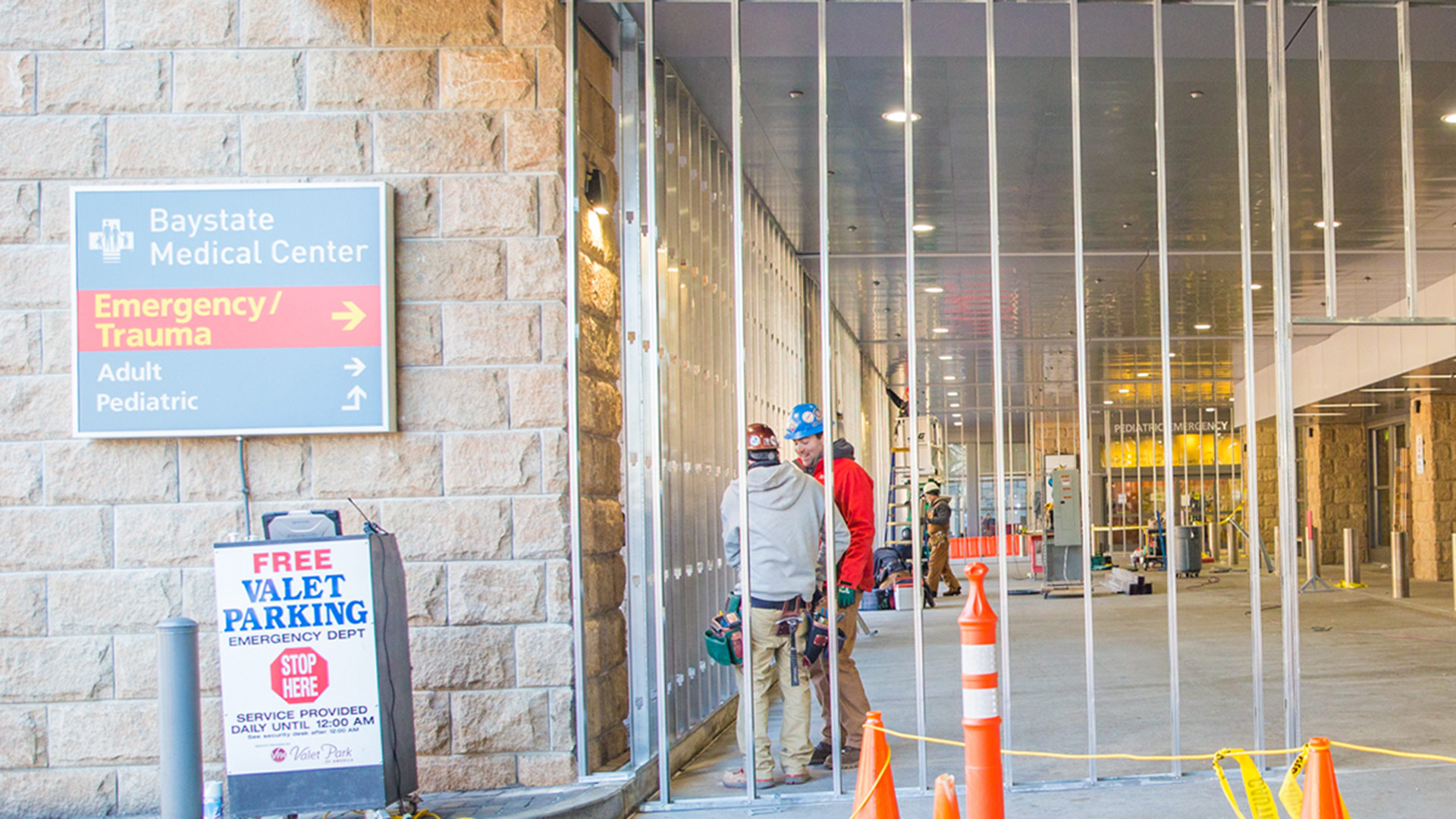 The Emergency Department was rather quiet at Baystate Medical Center on Monday morning.
The Emergency Department was rather quiet at Baystate Medical Center on Monday morning.

 It was becoming clear weeks ago that the novel coronavirus would have some sort of economic impact once it washed ashore in the U.S. — but it’s still not clear, and perhaps won’t be for some time, how severe and wide-ranging the damage could be, as people cancel travel plans, curtail business operations, shut down college campuses, and take any number of other actions to stay safe. It’s a fast-moving story, and one that’s only beginning.
It was becoming clear weeks ago that the novel coronavirus would have some sort of economic impact once it washed ashore in the U.S. — but it’s still not clear, and perhaps won’t be for some time, how severe and wide-ranging the damage could be, as people cancel travel plans, curtail business operations, shut down college campuses, and take any number of other actions to stay safe. It’s a fast-moving story, and one that’s only beginning.






